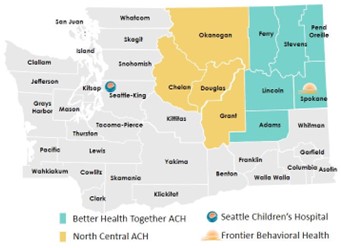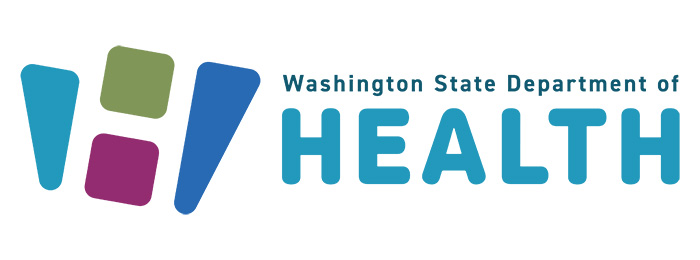Supporting Adolescents and Families Experiencing Suicidality (SAFES)
Take Our Health Professional Impact Survey
What is the SAFES program?
Supporting Adolescents and Families Experiencing Suicidality (SAFES) is a program that provides rapid access to suicide-specific psychotherapy in a brief 4-session model. The program is based on the Crisis Care Clinic model developed at Seattle Children’s. The Partnership Access Line (PAL) collaborates with Frontier Behavioral Health (FBH) to provide a combination of in-person and telehealth crisis support services for both the patient and their caregiver.
Primary care providers and behavioral health clinicians embedded in primary care offices with patients who live in an eligible county in Washington state and meet other criteria listed below can call PAL at 866-599-7257 to discuss their patient with a Seattle Children’s/University of Washington child and adolescent psychiatrist.
The phone consultation is covered by HIPAA, section 45 CFR 164.506; no additional release of patient information is required to consult by phone.
View the SAFES flyer (PDF).
Patient Eligibility Criteria
- Must live in an eligible county in Washington: Adams, Chelan, Douglas, Ferry, Grant, Lincoln, Okanogan, Pend Oreille, Spokane, Stevens
- Age 10-18
- Primary care provider determines patient has active concerns of suicidality, but is not severe enough to need an ED visit today.
- Patient should not be engaged in other mental health services unless current therapist or provider feels additional supports are needed.
- Primary care providers and behavioral health clinicians embedded in primary care offices must call PAL to refer a patient.
Currently there are no insurance restrictions.
Program Referral Process
Step 1: Primary Care Provider (PCP) calls PAL for consultation
- PCP calls PAL: 866-599-7257 (Monday through Friday, 8 a.m. to 5 p.m.).
- PCP will speak with a child and adolescent psychiatrist for case and medication consultation.
- PAL should be contacted by PCP offices ONLY and should not be provided to families for direct contact. It is intended to be a provider-to-provider consultation line.
Step 2: PAL assesses for SAFES eligibility – See patient eligibility criteria listed above
Step 3: PAL facilitates referral to SAFES
- If the youth meets inclusion criteria, and there are openings in the SAFES program, the PCP will be asked to provide the following information to the PAL consultant:
- Guardian’s first and last name
- Guardian’s relation to patient
- Guardian’s best contact phone number
- If the youth has an outpatient therapy provider currently (yes/no)
- PAL sends referral to SAFES at FBH
- Please note, this is not a guarantee of appointment.
- PCP will receive a fax confirmation from PAL following consultation and submission of referral to SAFES at FBH.
- PCP should immediately notify family of the SAFES referral and share that someone from FBH may reach out to offer an appointment with the SAFES program.
- PCP should inform the family that SAFES has limited capacity and is not able to offer appointments to all families that are referred. Families will only hear from FBH directly if they are able to offer an appointment. If no appointments are available FBH will alert the PCP only (and not reach out to the family).
Step 4: FBH will notify PCP of referral outcome
- If youth is scheduled with SAFES:
- FBH will contact the family directly to offer a SAFES appointment.
- PCP will receive notification via fax or telephone that the patient has been offered SAFES appointments.
- If youth is not scheduled with SAFES:
- PCP will receive a faxed notification letter.
- PCP retains the responsibility to notify family if SAFES cannot be offered. FBH will not contact family directly if unable to offer SAFES appointments.
Contact
Primary care providers and behavioral health clinicians embedded in primary care offices can call the PAL line at 866-599-7257 Monday through Friday, 8 a.m. to 5 p.m., to initiate referral to SAFES.
For more information please email: SAFES@seattlechildrens.org
More About SAFES

Frontier Behavioral Health partners with Seattle Children’s to provide direct SAFES services to families.

SAFES is funded by the Washington Department of Health and the U.S. Department of Health and Human Services (HHS).


